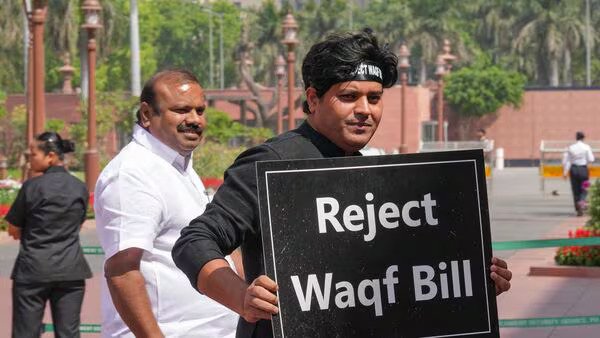PM Modi Fulfills Lalu’s Waqf Bill Demand Amid Opposition: Amit Shah

Dubela, Annrisha Kusari: Taking a historic move, Prime Minister Narendra Modi has fulfilled Lalu Prasad Yadav’s long-pending demand for a stronger law to regulate Waqf properties despite the opposition of various parties. Union Home Minister Amit Shah clarified that the Waqf Amendment Bill, 2025, aims to prevent corruption and provide transparency in Waqf boards.
The bill proposes to amend the Waqf Act, 1995, to provide for the appointment of a commissioner to oversee the functioning of Waqf boards. The move will bring transparency and accountability to Waqf boards so that the properties donated for charitable purposes are being used for it. The bill will not interfere in Muslims’ religious matters, Shah asserted, and is intended to protect Muslim brothers and sisters’ rights.
As per NDTV, the bill aims to bring transparency and accountability to Waqf boards so that properties donated for social purposes are used accordingly. The news channel’s headlines were, “Waqf Amendment Bill Introduced In Lok Sabha Amid Opposition” and “Waqf Amendment Bill: What It Seeks To Achieve.”
The Waqf Amendment Bill, 2025, has been welcomed by several Muslim organizations, who have for decades been demanding reforms in the Waqf sector. The bill is to be cleared in the ongoing Parliament session, despite opposition from all parties. The Modi government’s action has been hailed as a big step towards Waqf board transparency and accountability.
According to the Ministry of Minority Affairs, the bill aims at improving the management and administration of Waqf properties in India, and for making them more efficient and transparent. The Waqf board holds over 100,000 properties worth an estimated ₹1.5 lakh crore. The Waqf board derives an annual income of over ₹1,000 crore from the properties.
The opposition parties protested the bill and grieved that the bill would interfere in the Muslim religious rights. However, Shah clarified that the bill was rather meant to guard the Muslim brothers and sisters’ rights and not enter into their religious matters. As reported by The Hindu, the bill intends to further grant the Central Waqf Council the authority to manage Waqf properties.
Maulana Mahmood Madani, General Secretary, Jamiat Ulama-i-Hind also welcomed the initiative, and declared, “The Waqf Amendment Bill, 2025, is a welcome step. It will add transparency and accountability to Waqf boards and make sure properties given for social welfare purposes are utilized accordingly.”
However, Asaduddin Owaisi, All India Majlis-e-Ittehadul Muslimeen President, raised concerns over the bill and said, “We appreciate the government’s effort to bring in the Waqf Amendment Bill, 2025. But we have certain doubts regarding the bill and will oppose it in Parliament.”
In total, the Waqf Amendment Bill, 2025, is a significant shift in the government’s attitude towards the Waqf sector. Whether or not the bill will be welcomed by various stakeholders remains to be seen, but here’s one thing that is sure – the action by the Modi government to pass the Waqf Amendment Bill, 2025, is in the direction of making Waqf boards more transparent and accountable.





